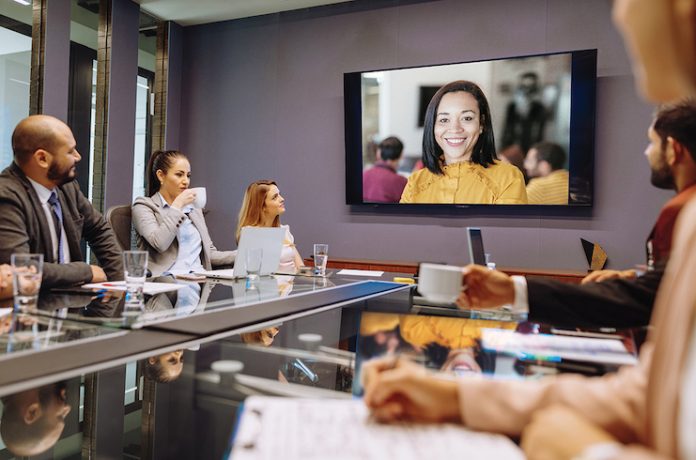
During 2021 and early 2022, the call for hybrid conference capabilities and virtual studios at hotels was at an all-time high due to the need to accommodate the many attendees that did not travel because of positive COVID tests, meeting size limitations, travel restrictions, or vaccination status, observed Joe Pasterkiewicz, vice president of specialty services group, Encore Global. “That demand has tapered off a bit with the normalization of in-person meetings. It is now being looked at as a ‘nice to have’ rather than the necessity it was 12-plus months ago,” he said. Nevertheless, preparedness to host meetings and events with a virtual component has become an important client offering. Pasterkiewicz shares five best practices for hoteliers that rely on group business.
1Focus on Infrastructure
Several key infrastructural features should be in place to support the best hybrid event experience, including network quality, availability of power in key locations, lighting, and control systems that are easily upgradeable and require only basic knowledge to operate, Pasterkiewicz recommended. “Focus on the venue’s overall readiness for complete event solutions rather than the ‘wow’ factor created by components that can become quickly out of date,” he said. Network quality and sufficient bandwidth to handle the presented content should be a primary concern, along with quality AV equipment. “High-definition cameras to make sure the visuals are clear, studio-quality microphones for crisp audio, and lighting that ensures the audience is engaged are all very important to a successful hybrid event,” he said.
2Explore Standalone Solutions
To add hybrid capabilities, a hotel needn’t embark on extensive infrastructure refurbishment. Freestanding solutions are available, such as Polycom, Rally Bar, and The Meeting Owl, which are now commonly used for smaller hybrid meetings. “While built-in equipment can sometimes feel like a great solution, for larger ballroom facilities, it can hamper the flexibility of the room,” Pasterkiewicz noted. However, “if the venue is looking for an integrated system, then the age the venue’s infrastructure for low-voltage electrical and network capabilities does factor into the overall expense of that solution.”
3Bring a Full Scope of Knowledge to Stage Design
When it comes to staging and rigging, detailed venue knowledge is key to crafting the best design. “Some common challenges we have seen pertaining to rigging and stage design usually center around firsthand knowledge of the property,” said Pasterkiewicz. “What are the capabilities, ceiling height variations, configurations of the room, number of rigging points, etc.?” Ideally, the hotel should be prepared with that information when partnering with an AV consultant or general contractor, and those individuals should be sensitive to varying event needs. “When a property is being built or renovated, some AV consultants and less experienced general contractors typically do not look at the room as a blank canvas or understand the importance of omni-directional event flexibility in the live event business,” he explains. “They suggest specific or narrowed stage direction and rigging point locations, rather than promoting a ready-for-anything mentality to accommodate the evolving needs of the event customer.”
4Determine the Right Amount of Staffing
The complexity of the event dictates the staffing needs, including both hotel and client-side production and support staff. “If it is just a two-way conference, then minimal onsite support would be required. If there are additional elements such as video rolls, PPT presentations, or using multiple computers for an event, then we would recommend a support technician for the duration of the event,” Pasterkiewicz said. “In the end, having a technical partner you can trust is the best way to ensure you have the right people on hand.”
5Ensure a Plan B Is in Place
Tech mishaps are always a possibility, although working with experienced providers minimizes that chance. A backup plan for broadcast to the remote audience is thus essential, and either the hotelier or the meeting group should partner with a provider that has a Plan B in place. “Redundancy is your friend in all cases,” said Pasterkiewicz. “To that regard, Encore utilizes cellular or satellite-based systems for backup that do not rely on the venue’s infrastructure to provide a reliable backup option.”










